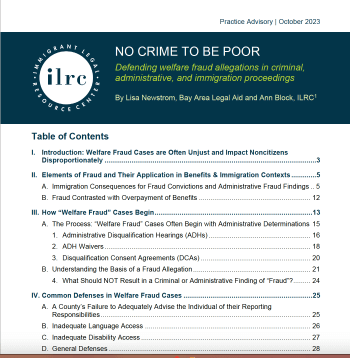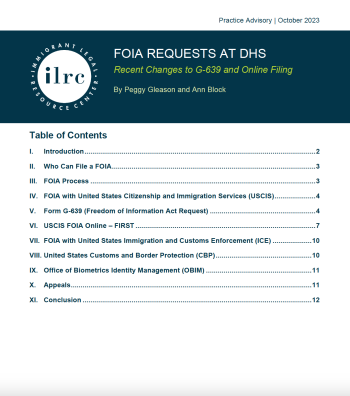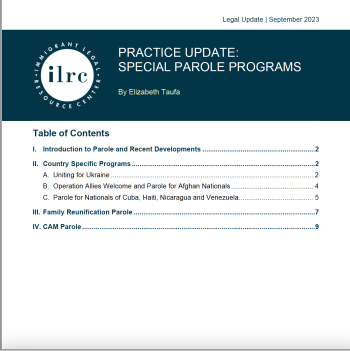The Immigrant Legal Resource Center (ILRC) immigration attorneys’ expertise focuses on family-based immigration, humanitarian relief, naturalization and citizenship, immigration enforcement, and removal defense.
Since 1979 we have helped expand the immigration expertise of attorneys, nonprofit staff, criminal defenders, and others assisting immigrant clients.
In addition to authoring the ILRC’s practice manuals, our expert attorneys have been published by Continuing Education of the Bar (CEB), American Immigration Lawyers Association (AILA), ILW.com, Huffington Post, Sargent Shriver National Center on Poverty Law, Center for Law and Social Policy, The Hill, LexisNexis Emerging Issues, and Fox News Latino.
We have also provided training to National Council of Juvenile and Family Court Judges, National Association of Criminal Defense Lawyers, American Immigration Lawyers Association (AILA), American Bar Association Commission on Immigration, Federal Bar Association, The State Bar of California, Legal Aid Association of California, Judicial Council of California and more.
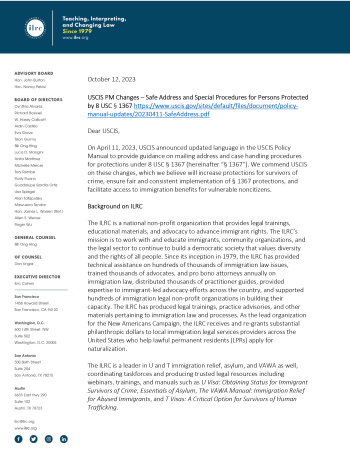
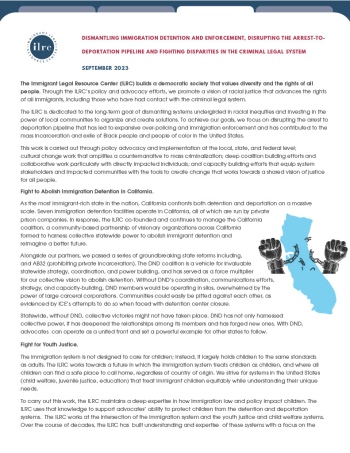
The ILRC is dedicated to the long-term goal of dismantling systems undergirded in racial inequities and investing in the power of local communities to organize and create solutions. To achieve our goals, we focus on disrupting the arrest to deportation pipeline that has led to expansive over-policing and immigration enforcement and has contributed to the mass incarceration and exile of Black people and people of color in the United States.
This work is carried out through policy advocacy and implementation at the local, state, and federal level; cultural change work that amplifies a counternarrative to mass criminalization; deep coalition building efforts and collaborative work particularly with directly impacted individuals; and capacity building efforts that equip system stakeholders and impacted communities with the tools to create change that works towards a shared vision of justice for all people
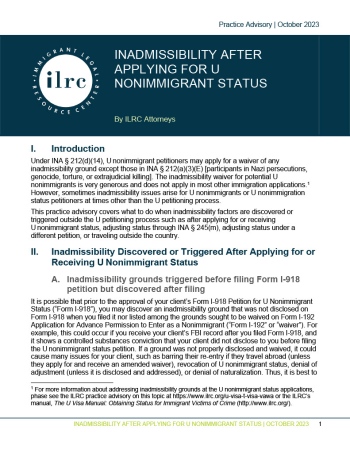
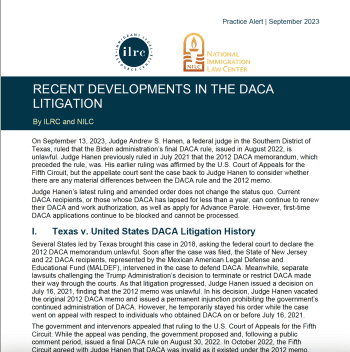
This Practice Alert goes over Judge Hanen’s latest ruling. It’s important to note that the amended order does not change the status quo. Current DACA recipients, or those whose DACA has lapsed for less than a year, can continue to renew their DACA and work authorization, as well as apply for Advance Parole. However, first-time DACA applications continue to be blocked and cannot be processed.
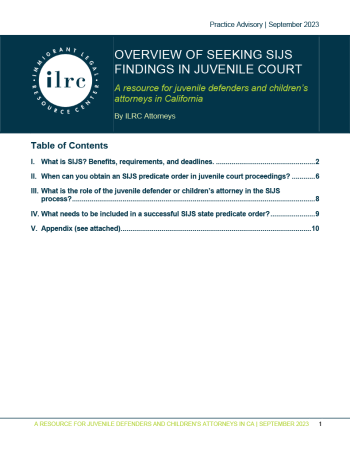

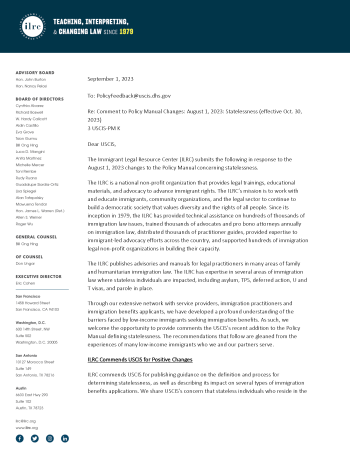
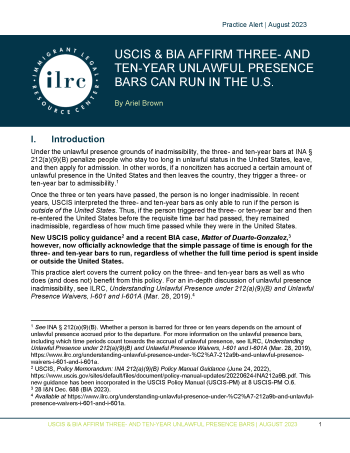
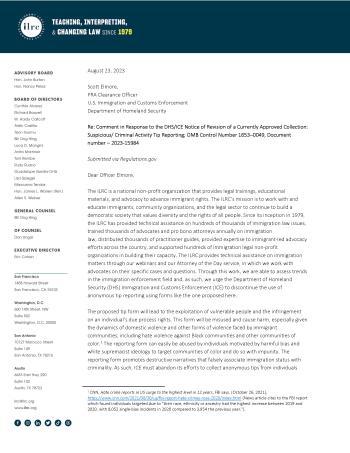

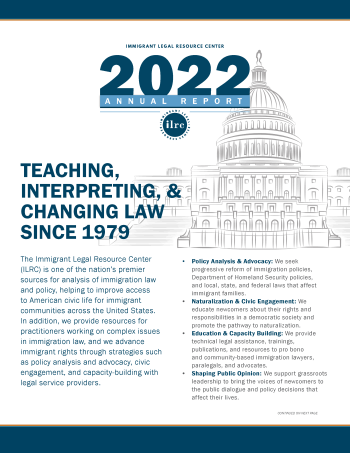
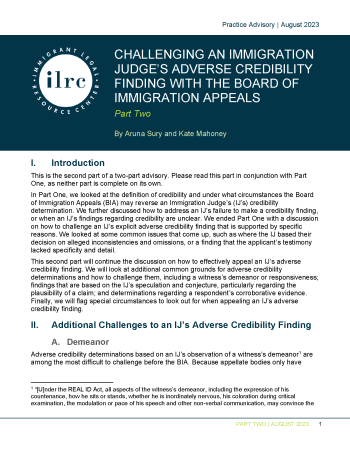
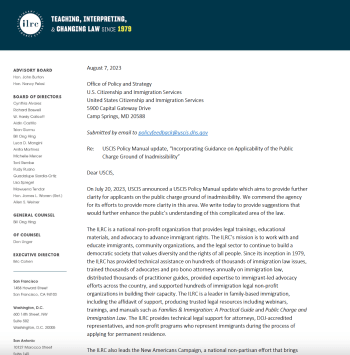
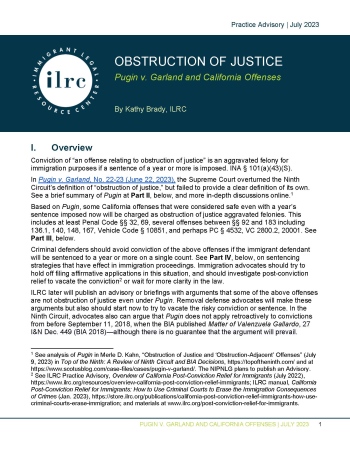
This Advisory discusses California offenses under Pugin, and discusses California criminal sentencing dispositions that avoid a sentence of a year or more for immigration purposes.
